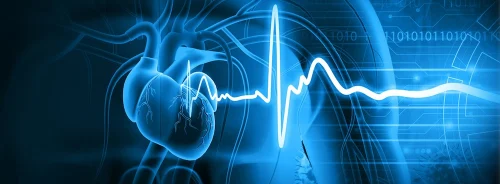Clinicians typically use 12-lead electrocardiograms (ECGs) to diagnose heart conditions such as heart attacks and rhythm disturbances. These ECGs involve a complex arrangement of electrodes and wires placed on the chest and limbs to detect the heart’s electrical activity. However, this requires specialised equipment and expertise, which may not be available in all clinics.
A team of scientists and clinicians from Scripps Research has developed a method to diagnose heart conditions with comparable accuracy using only three electrodes and an artificial intelligence (AI) tool. In the study published in npj Digital Medicine, the researchers demonstrate that their AI algorithm could recreate full 12-lead ECGs using data from just three ECG leads. Clinicians could identify heart attacks with nearly the same accuracy when reviewing the AI-generated ECGs compared to the original 12-lead ECGs.
This advancement could enable patients to access high-quality, time-sensitive clinical data without travelling to a facility equipped with a 12-lead ECG. It could mean increased access to ECG technology, reduced costs, and improved patient safety.
To develop the new AI tool, the team analysed data from over 600,000 12-lead ECGs, which included both normal health rhythms and a variety of heart conditions. They then tested different combinations of two or three electrodes to determine how well the AI could recreate the full 12-lead data. Deep learning algorithms allowed the researchers to process a large dataset and understand these relationships, enabling the reconstruction of the full 12-lead ECG.
The researchers tested their AI tool with a set of 238 ECGs, half of which showed signs of a heart attack. Cardiologists were shown either the original 12-lead ECG or the AI-reconstructed ECG using data from the three selected leads. The cardiologists could not distinguish between the two and correctly identified heart attack indicators 81.4% of the time in the AI-generated ECGs, compared to 84.6% accuracy with the original 12-lead ECGs.
However, before the algorithm can be widely used for clinical decision-making, further studies are needed with different patient populations and in various clinical settings. If the tool proves effective, it could expand the availability of ECGs to new settings with less specialised equipment and personnel, leading to faster diagnoses and treatments for patients.
This research is part of a broader effort to expand the use of AI tools in screening for and diagnosing heart conditions. This new work demonstrates how AI can enable clinicians to accomplish things that were previously impossible.
Source: Scripps Research Institute
Image Credit: iStock






